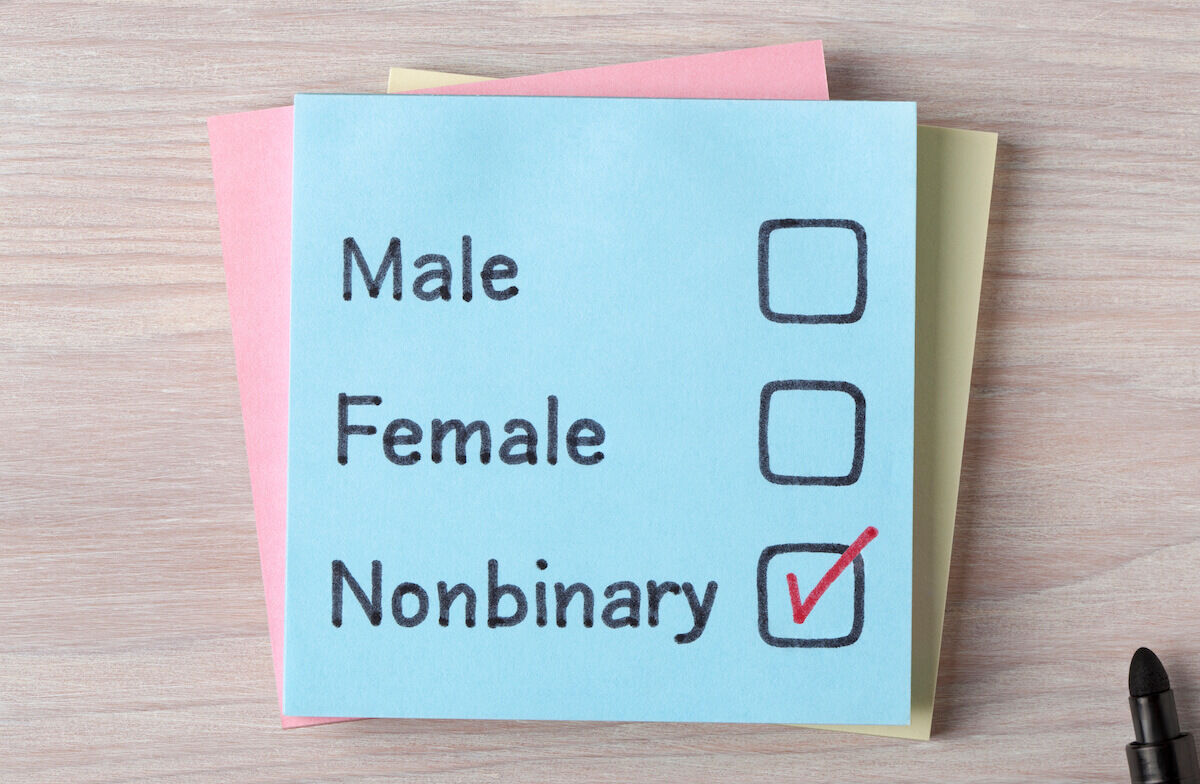Only five years ago, Transgender Law Center Senior Staff Attorney Shawn Meerkamper was writing a law school paper about non-binary IDs.
At the time, Meerkamper considered the concept a fun if not empowering “thought experiment.” No state, as far as anyone knew, had adopted them. (Arkansas had quietly started in 2010, but it was only this year that move was made public).
“Whenever I have the opportunity, I love to pause and take a minute and reflect and try to get other people to pause and reflect with me,” Meerkamper told INTO. “That was only five years ago.”
That distant dream of non-binary IDs is a reality now in five states and Washington D.C. In addition to Arkansas, Oregon, California, Maine and Minnesota all offer (or will soon offer) identification with a gender marker “X.”
“It makes it clear that we exist — that gender nonconforming, non-binary, intersex, and trans people exist,” Zach Miller, a board member of Arkansas Transgender Equality Coalition who has one such ID, told INTO.
But for many, that affirmation remains a mixed bag.
Non-binary gender markers are not yet widely available, leaving most who obtain them with incongruous documentation between state IDs, birth certificates and passports.
Finally, some are reluctant to obtain IDs that could out them as gender diverse, especially at a time when the Trump administration wants to legally erase transgender, non-binary, and intersex people.
Arli Christian, state policy director at the National Center for Transgender Equality, has been fielding about 20 questions a week about IDs. They say people ask if the federal government will rescind their documents, even if they’ve transitioned and changed their passport.
“I think it’s helpful that state governments are standing up and saying, we recognize other genders,” Christian told INTO. “State governments are passing policies that recognize that other genders exist and that they are not in the business of policing gender.”
Still, Christian and Meerkamper acknowledge there are several considerations for folks weighing non-binary IDs.
Any situation that requires IDs can become complicated by the new IDs, which are still not widely publicized.
While Oregon and D.C. have had their non-binary ID policies since June 2017, major airlines have failed to update their booking practices to accommodate them. The airline trade association Airlines for America has given their members a deadline of June 2019 to update their systems.
That doesn’t mean those with non-binary IDs can’t fly.
“It just means that the airlines are going to have to catch up,” Meerkamper said. “In the near-term, though, non-binary folks may want to prepare to have an alternative ID with a binary gender marker, like a passport, to ensure they can get where they need to go.”
TSA accepts “X” gender markers, and the Department of Homeland Security notes that the REAL ID Act doesn’t mandate gender markers on IDs at all.
Other situations where IDs come into play are worth thinking about, says Meerkamper.
“A bouncer at a bar might not know that this is a real thing now and might assume that this is fake,” they said. Meerkamper adds that complications can arise when registering for school or interacting with police.
But none of that, they said, should dissuade people from getting the documentation that reflects who they are.
“You’re talking for granted the complications that folks are already facing because their gendered ID doesn’t match their non-binary gender identity,” said Meerkamper. “That ID, in a lot of folks’ cases, is already causing issues for them in their day-to-day lives.”
Christian has had an “X” gender marker on their ID since June 2017 when Washington D.C. rolled them out. Overall, they said, barely anyone has noticed.
Non-binary passports could also be on the horizon.
In September, a federal judge ruled that the State Department must issue a non-binary passport to intersex Colorado resident Dana Zzyym. The ruling was the second in favor of Zzymm after the State Department refused to follow a 2016 order from the U.S. District Court for the District of Colorado to issue such a passport.
Many transgender people have expressed fears that their updated binary passports will be rescinded after the State Department replaced its long-standing webpage on “Gender Designation” for passports with “Sex Designation” in September. The Department has since walked back the website changes, and Christian says it is highly unlikely that trans people who have updated the gender markers on their passports will have them rescinded.
“The Department of State has come forward and said, ‘We are not going to change our gender marker policy,’” said Christian. “Additionally, retroactively rescinding decisions they have made in the past is rare and would be incredibly difficult for a federal agency to do.”
Christian acknowledges the precarious choice facing many in choosing a non-binary ID that might out them, especially at a time when trans rights and lives are under attack.
“You should have the designation on your ID that makes you feel the most comfortable, the most accurate, safest,” Christian advised.
Practically, the IDs will likely cause administrative confusion for some. But politically, experts agree, they are also powerful.
“I would encourage people to stand up in that power given to us by our state governments and use that to counter some of the hateful messages coming from the federal government,” said Christian.
“I don’t necessarily think that there’s safety in shadows,” echoed Meerkamper. “Of course, people make calculations about what is safe for them, but more visibility and not less is really important.”
Image via Getty
Help make sure LGBTQ+ stories are being told...
We can't rely on mainstream media to tell our stories. That's why we don't lock our articles behind a paywall. Will you support our mission with a contribution today?
Cancel anytime · Proudly LGBTQ+ owned and operated
Read More in Impact
The Latest on INTO
Subscribe to get a twice-weekly dose of queer news, updates, and insights from the INTO team.
in Your Inbox














